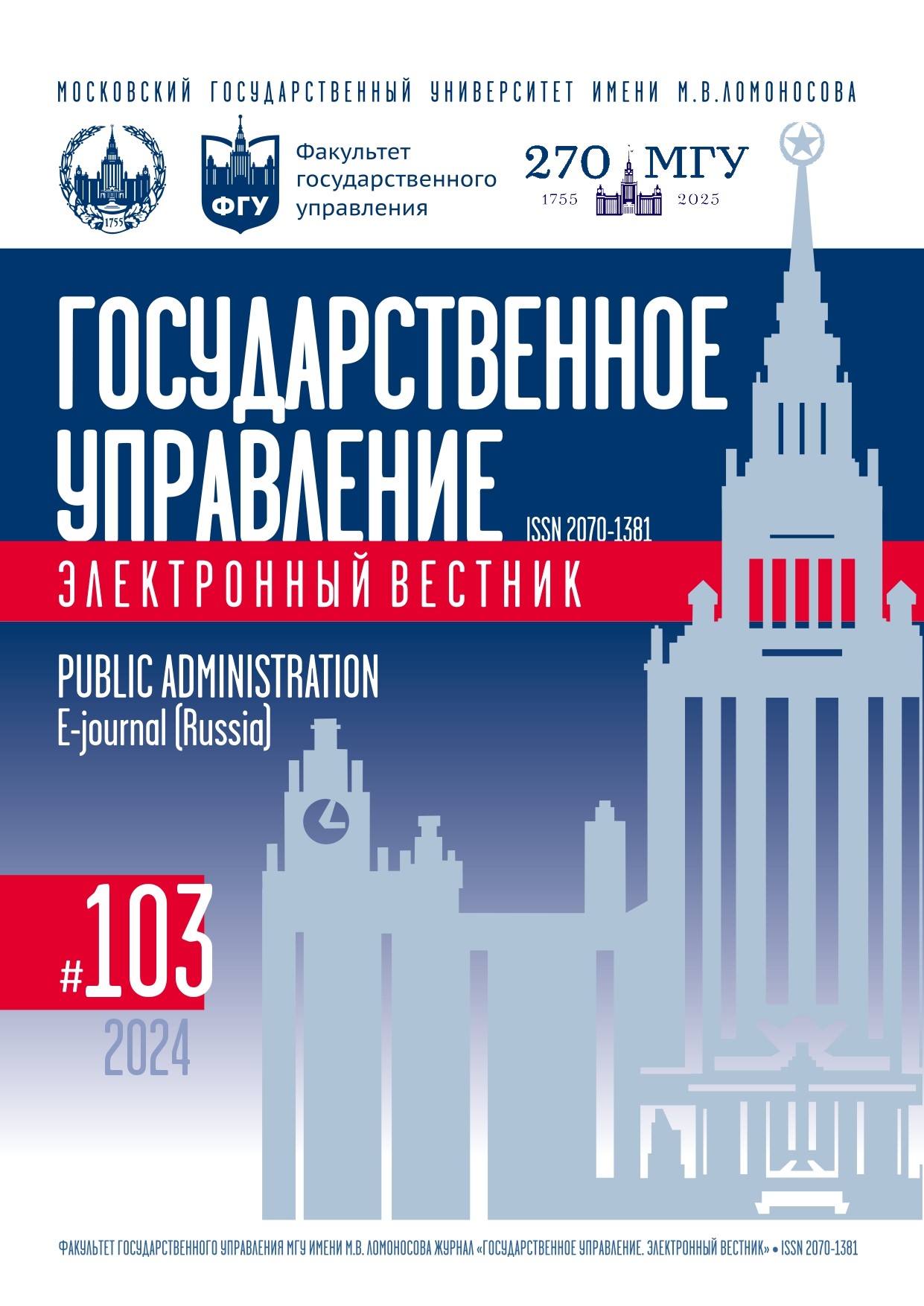Emergency Situation and Emergency: Issues of Theoretical Conceptualisation
Keywords:
Emergency situation, emergency, decision-making process, emergency management, government emergency powers, emergency legislation.Abstract
This article raises the issue of using objective criteria as a guideline for the identification of emergencies. For this purpose, the author proposes to clarify the nature of the emergency through the comparison of the concept of “emergency situation” accepted in the Russian tradition with its Western analogue “emergency”. On this basis, the paper considers two approaches to defining an emergency. The first approach gives emergency situations a narrower content and from this point of view considers them as separate manifestations of emergency. The other approach, on the contrary, perceives emergency situations as a broader phenomenon, thereby equating them to the concept of emergency. The research unveils the main characteristics of an emergency — unpredictability, significant economic and human losses, the use of government emergency powers. This paper also forms an approach that eliminates semantic differences between Western and Russian scientific traditions and allows us to consider emergencies as events of a wide range of manifestations — humanitarian, economic, natural, etc. The vector of further research can be aimed at developing new approaches to defining and comparing an emergency situation, exception and state of emergency, developing a universal approach to defining an emergency in the context of globalisation and global emergency, proposing a new applied model of emergency management in the context of globalisation, developing a new typology of emergency situations, as well as searching for tools and determining the necessary resource base for managing new types of emergencies.
References
Агамбен Дж. Куда мы пришли? Эпидемия как политика. М.: Ноократия, 2022.
Андреев С.А. Концептуальные подходы к трактовке понятия «чрезвычайная ситуация» // Вестник Воронежского института ГПС МЧС России. 2015. № 1(14). С. 47–55.
Глущенко П.П., Шукюров Э.А. История формирования полномочий органов государственной власти по ограничению прав, свобод и законных интересов граждан в зоне чрезвычайного положения // Социология и право. 2012. № 1(12). С. 66–81.
Калина Е.С. Понятие чрезвычайной ситуации в административном праве: структура и содержание // Вестник ВГУ. 2011. № 1(10). С. 262–267.
Княжев В.Б., Майдыков А.Ф. О некоторых особенностях правового регулирования деятельности органов внутренних дел Российской Федерации в особых условиях // Труды Академии управления МВД России. 2018. № 3(47). С. 91–96.
Кропачева А.В. Совершенствование системы административно-правовой защиты населения и территорий от чрезвычайных ситуаций в условиях административной реформы // Вестник Университета имени О.Е. Кутафина (МГЮА). 2018. № 1(41). С. 110–116. DOI: 10.17803/2311-5998.2018.41.1.110-116
Порфирьев Б.Н. Организация управления в чрезвычайных ситуациях (Проблемы предотвращения и сокращения масштабов последствий технологических и природных катастроф). М.: Знание, 1989.
Снеговой А.В. О некоторых подходах к определению понятия «чрезвычайные обстоятельства» и их видов // Труды Академии управления МВД России. 2012. № 4(24). С. 38–41.
Старостин С.А. Чрезвычайное положение. М.: Проспект, 2019.
Талеб Н.Н. Черный лебедь. Под знаком непредсказуемости. М.: КоЛибри, Азбука-Аттикус, 2018.
Фролов А.И. Чрезвычайные ситуации: гражданско-правовой аспект // Стратегия гражданской защиты: проблемы и исследования. 2014. Т. 4. № 1(6). С. 4–15.
Domrin A.N. The Limits of Russian Democratisation: Emergency Powers and States of Emergency. Abingdon: Routledge, 2006.
Ferejohn J., Pasquino P. The Law of the Exception: A Typology of Emergency Powers // International Journal of Constitutional Law. 2004. Vol. 2. Is. 2. P. 210–239. DOI: 10.1093/icon/2.2.210
Gross O., Aolain F.N. Law in Times of Crisis: Emergency Powers in Theory and Practice. Cambridge: Cambridge University Press, 2006.
Lazar N.C. States of Emergency in Liberal Democracies. Cambridge: Cambridge University Press, 2009. DOI: 10.1017/CBO9780511596704
Roach K. Ordinary Laws for Emergency and Democratic Derogations from Rights// Emergencies and the Limits of Legality / ed. by Victor V. Ramraj. Cambridge: Cambridge University Press, 2008. P. 229–257. DOI: 10.1017/CBO9780511552021.011
Sagos N. Democracy, Emergency, and Arbitrary Coercion: A Liberal Republican View. Boston, MA: Brill, 2014.

